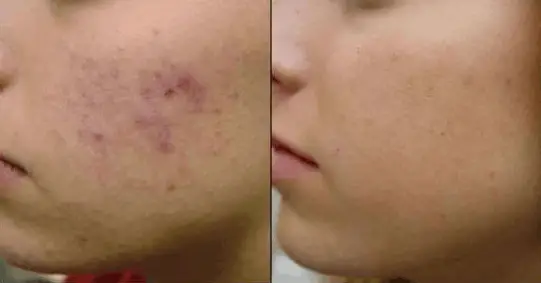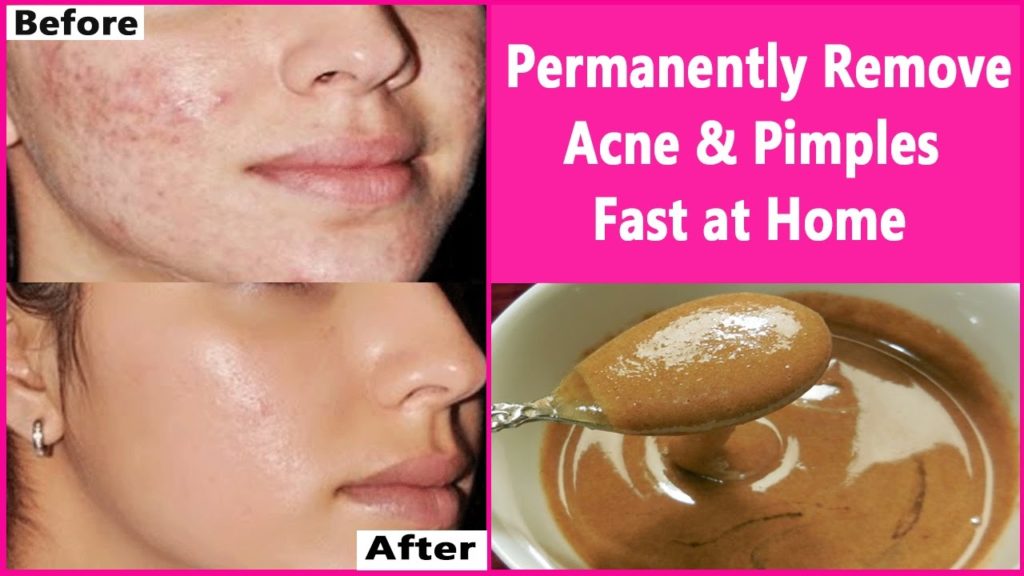Table of Content
This is perhaps one of the most widely used anti-acne ingredient in topical creams. It is available in various dosage forms in concentrations of 2.5% to 20%. The maximum concentration available as an OTC product is 10%. It has anti-inflammatory properties and is a bactericidal agent oxidizes proteins in the bacterial cell membrane and thereby reduces acne. However, since it’s extremely drying and can cause skin peeling and sloughing, it’s best to consult a doctor beforehand.

With a cotton swab, apply chilli water on acne. You can also make a pack of half teaspoon of turmeric powder and 2 teaspoons of yogurt. Add a very little quantity of honey and stir it well to form a smooth paste. Stir it well and apply it on face, covering the infected area.
Reducing stress
Jojoba oil is a natural, waxy substance extracted from the seeds of the jojoba shrub. I had fast results and in 1 month I was fine without acne." Thanks to all authors for creating a page that has been read 512,420 times. Acne removal is a procedure where your doctor drains or injects medicine into a large acne cyst that doesn’t respond to medicine. Chemical peels help remove the outer layers of your skin to reveal fresh, possibly clearer skin.

Applying calamine lotion may also help to dry out the lesion. Tea tree oil has been used to reduce skin irritation and acne for years. Apply a small amount of tea tree oil directly to your acne. Do this after washing your face for the best results. Honey and cinnamon have antioxidant, antibacterial, and anti-inflammatory properties, so they may benefit acne-prone skin when applied to it .
How we reviewed this article:
This is a very versatile and popular home remedy used for many things including acne! It is a good toner that helps to clear up scars and acne marks. Vinegar is a powerful astringent that also stimulates blood flow to areas, which speeds healing and regeneration of cells. Apple cider vinegar also balances the pH level of your body and of your skin when applied topically. Take 2 to 3 teaspoons of baking soda and 2 teaspoons of water and mix together well until it forms into a thick paste. Apply this paste on the affected area and massage it in a circular motion.
Using a small cotton ball, apply apple cider vinegar on the affected areas. Leave it to dry completely, should take no more than 10 minutes. Sea salt has anti-inflammatory properties to soothe skin and calm breakouts and irritation. It also is a way to help relieve stress out of your body. This natural back acne cure helps to balance oil production and retain hydration in the layers of skin where it’s needed most. This is a great home remedy as olive oil is something many have at home!
Q. Some of the home remedies for acne include using Aspirin and Listerine as acne spot treatment? Are they safe?
This will help prevent sweat, oils, and dirt from clogging your pores and irritating your skin. While fatty foods are often considered bad for acne, there are good fats that help fight acne. Eat foods rich in omega-3 fatty acids, which can help reduce inflammation and prevent new breakouts. Treat your skin with tea tree oil once a day to fight bacteria. Studies show that tea tree oil can help treat several skin conditions, including acne.
When nothing seems to work, there are always OTC treatments that have been known to be quite effective, when used consistently over a period of time. However, it’s recommended you consult a doctor just to be on the safe side. Treat your plugged ears in no time with effective natural remedies.
Honey and cinnamon extract can work together to fight the bacteria that cause acne. Dilute 2-3 drops of the oil in 1 teaspoon (4.9 mL) of a gentle carrier oil, such as jojoba or olive oil, or your favorite moisturizer. Use your fingertips or a cotton swab to spread it gently over any pimples or inflamed areas. Steam can be helpful for treating acne because it helps to open up your pores, which prevents them from being clogged. Steam also moisturizes and detoxifies your skin. Egg whites are effective in removing pimples and scars formed by pimples.
One of the best home remedies for acne marks, make a consistent paste of sandalwood powder and rose water. Apply it as a pack on your full face or choose to use it as acne spot treatment, it works both ways. One of the best home remedies for acne scars overnight is to apply petroleum jelly over your acne marks. Repeat this on a regular basis for best results. Yogurt contains lactic acid, which acts as an exfoliator and rejuvenates skin in a natural manner. This remedy will reduce the irritating acne breakouts.
While certain components of apple cider vinegar may help with acne, there’s currently no evidence to support its use for this purpose. Some dermatologists advise against using apple cider vinegar at all, as it may irritate the skin. Butt acne is hard to treat because it's not acne in the first place. By and large, when you see red bumps and blemishes on your behind, they are not pimples, but folliculitis, a mild infection that can lead to inflamed pores.
Apply to the pimple and area around it, using clean hands, to target the pore and oil builtup underneath. Fuller’s earth, commonly known as multani mitti, is known for absorbing extra oil from the skin. It is a natural remedy for the treatment of acne. To start the process, mix fuller’s earth, sandalwood powder and rose water in equal quantity. Mix the paste well and apply the pack on the face. After it gets dried, wash it off with clean water.
Garlic contains various properties such as antiviral, antifungal and antioxidant components. Using a teaspoon of honey, apply it all over your skin especially onto the areas of concern. Gently massage in a circular motion and leave it on for 10 minutes, and then wash your face off with cold water. Lemon has natural bleaching properties, and promotes clear skin. Vitamin C in lemon helps in rebuilding collagen and the citric acid also helps to remove dead cells. A consistent skin care routine can prevent future breakouts and reduce the risks of acne scarring.
























